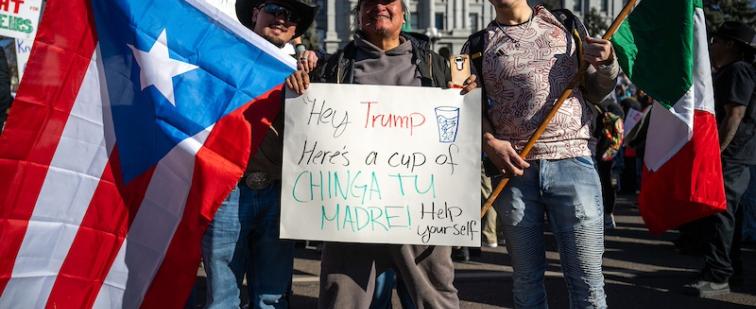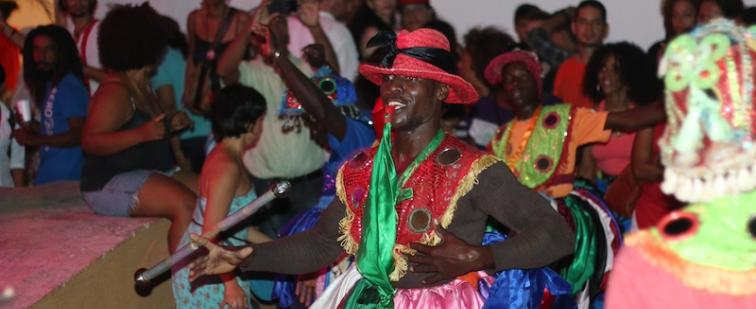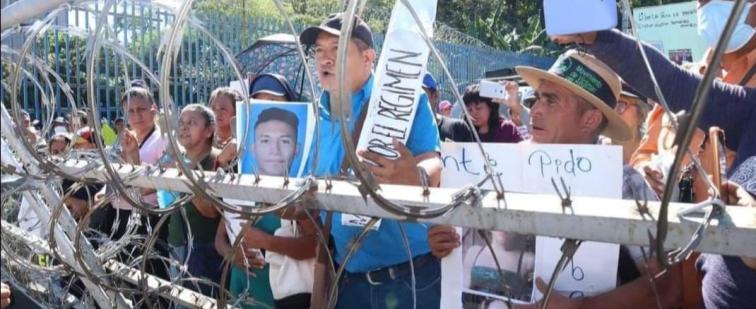Home
Border Wars
March 21, 2012
A recent visit to Nogales, Arizona, and to the U.S. Border Patrol station there—the country's largest—brings home the dramatic transformation of the U.S.-Mexico borderlands over the last couple of decades. It also illustrates how U.S. authorities are envisioning and laying the groundwork for a "war" without end against what they construct as an endless supply of threats emanating from the Mexican side of the international divide.
March 20, 2012
As Mexico’s presidential campaign moves into high gear, the left-of-center candidate for the presidency, Andrés Manuel López Obrador (AMLO) sketched a plan to combat the country’s high levels of violent crime by gradually removing the out-of-place military from the streets and replacing it with a professional force that would be drawn from the citizenry.
Rebel Currents
March 15, 2012
A tribute to Domitila Barrios de Chungara, long-time Bolivian social activist, feminist, and mine union leader whose 1978 hunger strike is credited with bringing down the dictatorship and changing the course of Bolivian history.
The Other Side of Paradise
March 15, 2012
Canadian banks operating in the Caribbean are nothing new; the Royal Bank of Canada proudly claims that it had branches in the Caribbean before it had opened any in Western Canada. This pattern of foreign economic domination in the Caribbean has resulted in dangerously high levels of dependency, undermining local attempts to bring forth greater self-sufficiency and control over major industries.
March 15, 2012
On a visit to Mexico last month Secretary of State Hillary Clinton said she greatly admired President Felipe Calderón for the offensive he had unleashed against organized crime, and was proud of its results. On the other hand, the consulting firm Strategic Forecast, Inc. (Stratfor) issued an alert last week, warning that spring-breaking U.S. college kids faced risks in virtually all the Mexican hotspots typically visited over their spring vacations.
March 14, 2012
With shouts of “Presente por la patria” (“Committed to the homeland”), spirits were high on Sunday night amongst right-wing supporters at the Feria Nacional polling center in San Salvador, where international observers watched the vote count in El Salvador’s first election since the historic victory of the Farabundo Martí National Liberation Front (FMLN) in 2009.
Border Wars
March 14, 2012
After more than four years of asking the supermarket chain Publix to sit at the table and negotiate a Fair Food Agreement, from March 5-10 Coalition of Immokalee Workers did a five-day fast to put the pressure on Florida's richest corporation. This video captures the fifth day of this fast.
March 9, 2012
Over the weekend of February 18 and 19, in Tocoa, Honduras, more than 1,400 campesinos, indigenous people and their allies met to continue their fight against repression. Activists organized the international gathering in solidarity with Honduras to expose the rampant violations of human rights and the systematic killing of campesinos.
The Other Side of Paradise
March 8, 2012
The killing of 21 people—including a 13-year-old girl and an elderly man—by the Jamaican police in the past six days has highlighted the systemic problem the country is having with controlling the inappropriate use of deadly force.
Cuadernos Colombianos
March 8, 2012
The FARC is taking the political initiative and increasing the pressure on the government of Juan Manuel Santos to initiate peace talks. It remains unclear, however, if Santos will engage the FARC and seek a peaceful end to hostilities before the 2014 presidential election.













